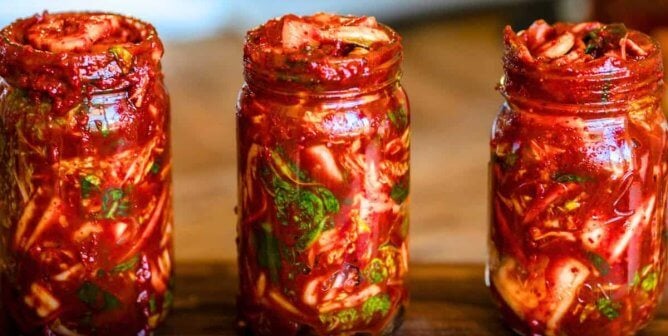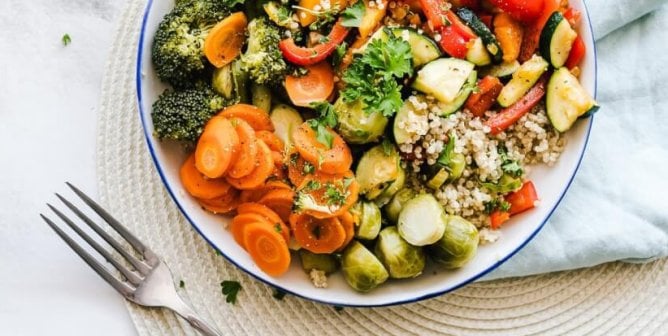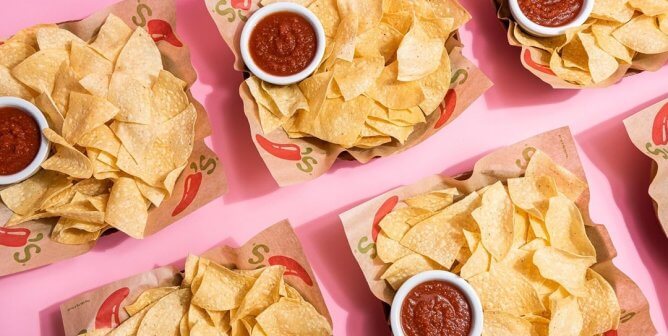This article originally appeared on PETA Prime.
If you’re like most people, the turkey probably wasn’t the only thing that got stuffed on Thanksgiving. The average person consumes an extra 600 calories per day between Thanksgiving and New Year’s and gains 1 pound during the holiday season. That doesn’t sound like much until you remember that most of usnever lose that extra weight. The weight stays on throughout the winter and keeps adding up, year after year. For people who are already overweight, the news is even more depressing: Overweight people tend to gain 5 pounds or more during the holidays.
But you can help fend off the annual holiday spread with one simple strategy: Stick to festive meat- and dairy-free treats and avoid calorie-dense, artery-clogging animal-based foods.
Vegans—people who consume no meat, dairy products or eggs—tend to be slimmer than meat-eaters and more likely to stay slim even during the season of eating.
A British study published in the International Journal of Obesity found that vegans have a significantly lower body mass index than meat-eaters; vegetarians fall somewhere in between. When researchers at the nonprofit Physicians Committee for Responsible Medicine asked overweight patients to try a low-fat, vegan diet, not only did the patients lose weight without counting calories—they also kept the weight off during the holidays.
So how bad can some traditional holiday fare be? Let’s look at the numbers. Just one cheese straw contains a third of your daily limit for saturated fat—and who ever ate “just one”? One bite-sized cheese ball can contain more than 500 calories, more than half of your daily limit for cholesterol and almost a day’s worth of total fat. Shrimp cocktail may look harmless, but this perennial party favorite is a cholesterol bomb waiting to happen. A typical serving of shrimp contains two-thirds of the daily maximum for cholesterol.
One serving of prime rib contains 45 grams of fat—and that’s before you add seasonings or a sauce. Turkey is loaded with even more fat and cholesterol than many cuts of beef. A turkey leg contains more than 700 milligrams of cholesterol and more than 1,600 calories—40 percent of which are derived from fat.
And before you toast the season with a glass of eggnog, consider that one cup of this sugar, cream and egg concoction can contain 19 grams of fat and more than 20 grams of sugar. Factor in the risk of salmonella in raw eggs, and eggnog might not be such a good idea.
Eating plant-based foods has other benefits too. The American Dietetic Association, the nation’s largest group of nutrition professionals, found that vegetarians have a lower rate of heart disease, diabetes and cancer than meat-eaters, in addition to a lower rate of obesity. And vegans don’t just give their health a boost—they save more than 100 animals a year from immeasurable suffering.
With so many people trying vegan foods these days, you’re bound to find delectable vegan options—such as savory vegetable pot pie, baked acorn squash drizzled with maple syrup, wild mushroom pâté, roasted pumpkin soup, chocolate mousse tart and vegan eggnog—on the holiday buffet. By consciously choosing these good-for-you foods instead of mindlessly munching your way through the holidays, it is possible to survive the season without feeling deprived or packing on unwanted pounds.
And if you should happen to overindulge, it’s never too late to get back on track. Just make eating vegan your number one New Year’s resolution.
Text VEG to 73822 to get the latest vegan lifestyle tips, recipes, and urgent action alerts texted right to your phone.
Terms for automated texts/calls from PETA: https://peta.vg/txt. Text STOP to end, HELP for more info. Msg/data rates may apply. U.S. only.








